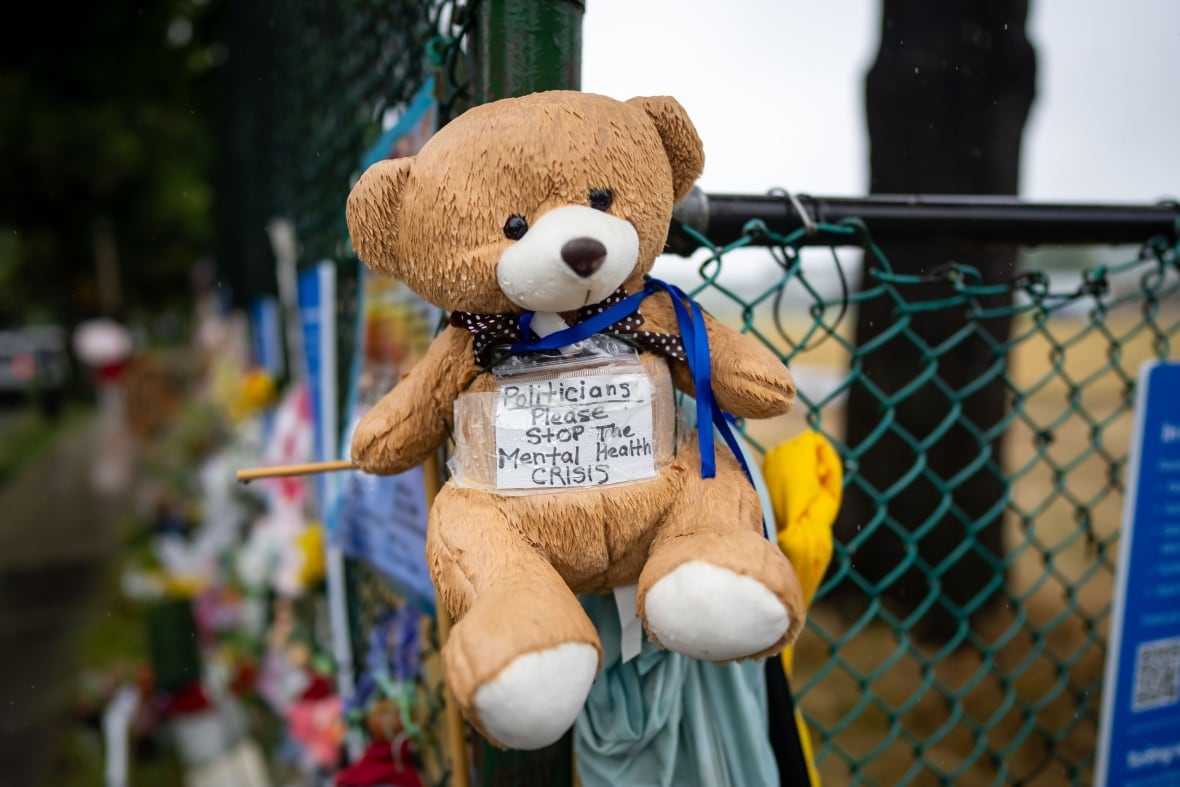B.C. report urges greater support for community organizers in aftermath of Lapu-Lapu Day festival tragedy
Vancouver Mayor Ken Sim says the commission didn't ask the city for input on the report

The report of a B.C. commission created in the aftermath of the tragic events at a Filipino street festival in Vancouver has recommended the province better support community organizers through increased access to safety training and grants to offset security costs.
The Commission of Inquiry into Community Events Safety, headed by former chief justice Christopher Hinkson, was established by the province after multiple deaths and injuries during an alleged attack at a Filipino community event on April 26.
Eleven people died at the Lapu-Lapu Day Block Party, with dozens more injured, after the accused Kai-ji Adam Lo, 30, rammed an SUV into a crowd of people.
Vancouver Mayor Ken Sim says the City of Vancouver wasn't asked for input on the report.
"It is a little unfortunate, and it is disappointing that we weren't consulted in a meaningful way. This event happened in our backyard, and the City of Vancouver, we have a lot to offer through our experience," said Sim.

It's been reported Lo had multiple interactions with police and suffered with his mental health before the Lapu-Lapu Day tragedy.
Lo's next court appearance on July 23 is for a hearing to assess his mental fitness to stand trial.
The commission, which looked at festival safety in general, heard from municipalities across the province, regional districts, Indigenous partners, police, and event organizers from a wide range of communities, ultimately making six recommendations aimed at improving safety outcomes for community events in the province.
But the report says the need to examine the availability of mental health services in the province, though critical, fell outside the commission's scope.
"The lasting trauma experienced by victims, families, and communities remains a solemn reminder of what is at stake in public safety planning," said Hinkson.
"However, the Lapu-Lapu Day incident itself is the subject of an ongoing criminal investigation and was excluded from the commission's mandate."
Report Recommendations
The 67-page report recommends better collaboration between event organizers and emergency personnel that would include routine assessments after public events.
The report suggested the province provide more opportunities for festival organizers to access funding to help pay for security measures at their events, such as fencing, barriers and traffic control, as well as establish clear criteria that define roles and responsibilities for the event during planning.
Hinkson recommended all public events in B.C. include a mandatory risk assessment that takes into account an event's scale, location, activities, and potential hazards, and calls on the province to create a centralized hub for event safety where event organizers can find standardized advice, training, and practical tools.
Vancouver has over 2,200 events per year, plus another 1,000 protests, and already adheres to some of the report's recommendations, says Sim.
"We review our security infrastructure all the time on an ongoing basis. Obviously, Lapu-Lapu was a pretty big jolt."
The city is conducting its own review into the Lapu-Lapu tragedy, but Sim did not share a timeline for its completion.
"Look, we're gonna do our review, but I think if I were to wave a magic wand, I think the root cause of a lot of the challenges we see is mental health."
"It would have been nice if the time and effort that was spent on this report were spent on the root cause, which is mental health."

At a Wednesday announcement, Terry Yung, the B.C. minister of state for community safety, said his office "fully accepts the intent of the recommendations," and intends to do its best to implement them as soon as possible before the end of the year.
"We're hoping to do this as soon as we can and for future events this summer and in 2025, instead of looking to 2026," said Yung.
"It's never too soon to actually plan effective and safer events for the public to attend."
With files from Katie DeRosa and Maurice Katz
